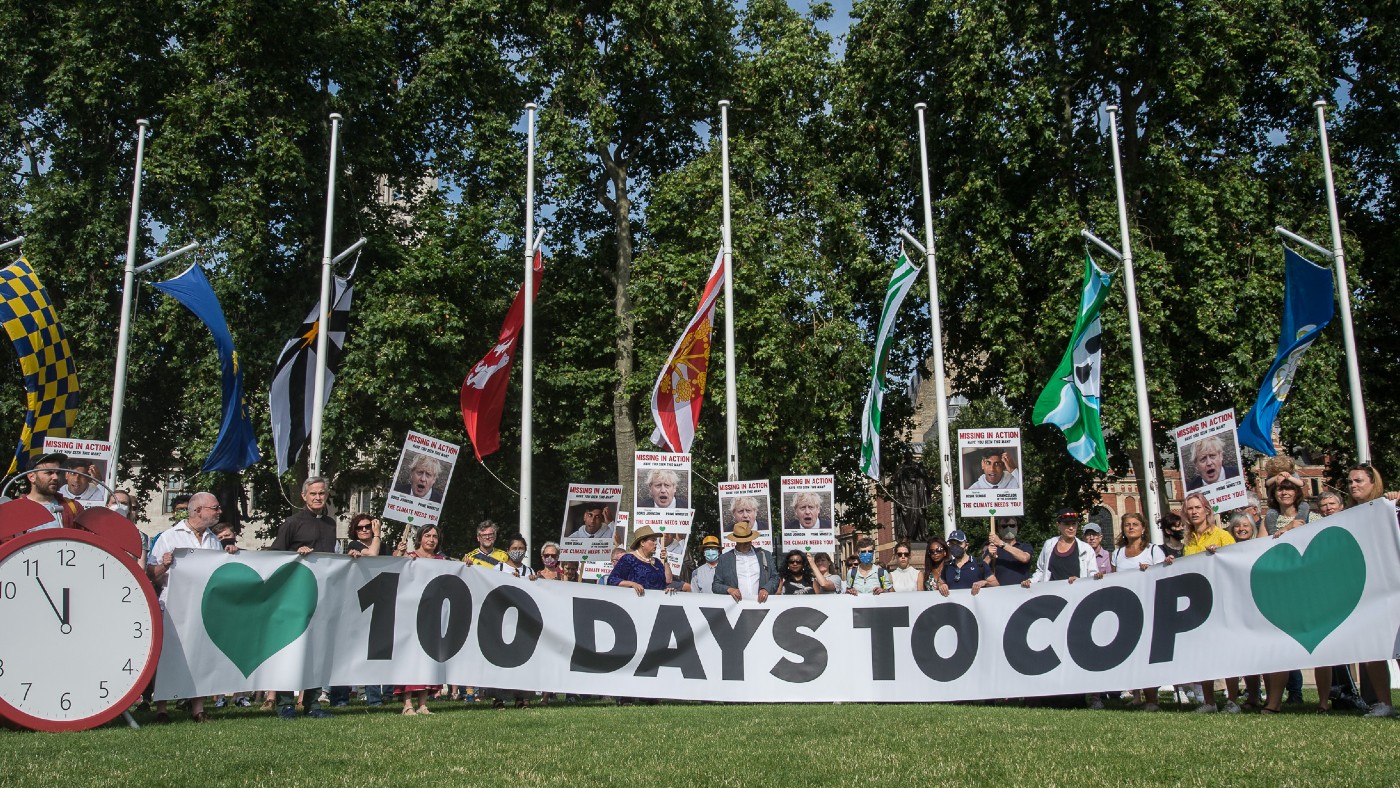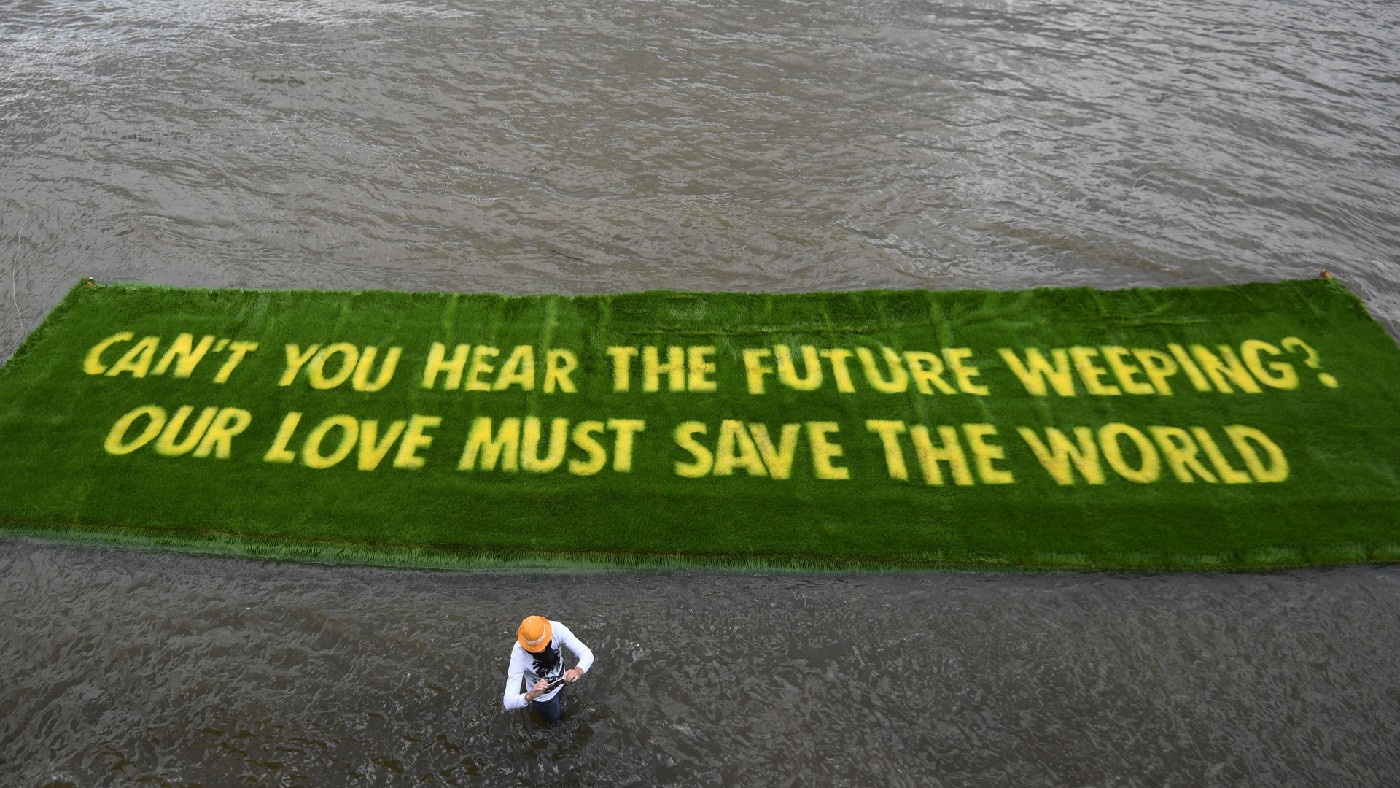Hot air and empty rhetoric: is the UK acting too slowly on climate change?
‘Every day, new evidence accumulates that humanity is on an unsustainable path’

A free daily email with the biggest news stories of the day – and the best features from TheWeek.com
You are now subscribed
Your newsletter sign-up was successful
“There is nowhere to hide from climate change,” said the New Statesman. “Every day, new evidence accumulates that humanity is on an unsustainable path.” In China last month, unprecedented rainstorms forced the relocation of more than a million people in Henan province. In the US, smoke from massive wildfires in California has spread as far afield as New York. In Germany, floods killed more than 150 people last month. In London, flash floods submerged cars and train stations.
Temperatures are now 1.1-1.3°C higher than pre-industrial levels. The world may have only a decade left to prevent them rising by more than 1.5°C – the point at which the risk of irreversible and catastrophic climate change “significantly increases”. So the UN Climate Change Conference in Glasgow in November, known as COP26, could hardly be coming at a more crucial moment.
There are less than 100 days until COP26, said The Times. “Yet Britain has spent the past week debating whether it is necessary to rinse the dishes before putting them in the dishwasher.” Allegra Stratton, Boris Johnson’s COP26 spokeswoman, has suggested that such “microactions” can help to reduce greenhouse gas emissions. This may be so, yet her advice seems symbolic of our failure to face up to the immense task ahead.
The Week
Escape your echo chamber. Get the facts behind the news, plus analysis from multiple perspectives.

Sign up for The Week's Free Newsletters
From our morning news briefing to a weekly Good News Newsletter, get the best of The Week delivered directly to your inbox.
From our morning news briefing to a weekly Good News Newsletter, get the best of The Week delivered directly to your inbox.
Britain is meant to be leading by example, and it has set ambitious targets: to cut emissions by 78% relative to 1990 levels by 2035, and to reach “net zero” by 2050. However, “it has yet to set out in any detail how it proposes to achieve this”.

The UK is often told that it is acting much too slowly on climate change, said Nick Timothy in The Daily Telegraph. Yet since 1990, it has cut its carbon emissions at almost twice the rate of the EU. China, meanwhile, is opening a new coal-fired power station at the rate of one a week. Even in Germany, 24% of electricity still comes from coal; and a meeting of the G20 large economies broke up last week without any deal to phase out coal. Does it really make sense for Britain, which generates 1% of global emissions, to impose big costs on taxpayers in order “to reach net zero before everybody else”?
This is the problem with climate politics, said Philip Stephens in the FT. They happen on the global stage, often completely removed from the “gritty local politics” that decide what actually gets done. The gap between the “soaring rhetoric” of international conferences and “policy inaction at home” will have to be bridged, and soon. “Look at the weather.”
A free daily email with the biggest news stories of the day – and the best features from TheWeek.com
-
 Political cartoons for February 15
Political cartoons for February 15Cartoons Sunday's political cartoons include political ventriloquism, Europe in the middle, and more
-
 The broken water companies failing England and Wales
The broken water companies failing England and WalesExplainer With rising bills, deteriorating river health and a lack of investment, regulators face an uphill battle to stabilise the industry
-
 A thrilling foodie city in northern Japan
A thrilling foodie city in northern JapanThe Week Recommends The food scene here is ‘unspoilt’ and ‘fun’
-
 Why broken water companies are failing England and Wales
Why broken water companies are failing England and WalesExplainer With rising bills, deteriorating river health and a lack of investment, regulators face an uphill battle to stabilise the industry
-
 The plan to wall off the ‘Doomsday’ glacier
The plan to wall off the ‘Doomsday’ glacierUnder the Radar Massive barrier could ‘slow the rate of ice loss’ from Thwaites Glacier, whose total collapse would have devastating consequences
-
 Can the UK take any more rain?
Can the UK take any more rain?Today’s Big Question An Atlantic jet stream is ‘stuck’ over British skies, leading to ‘biblical’ downpours and more than 40 consecutive days of rain in some areas
-
 As temperatures rise, US incomes fall
As temperatures rise, US incomes fallUnder the radar Elevated temperatures are capable of affecting the entire economy
-
 The world is entering an ‘era of water bankruptcy’
The world is entering an ‘era of water bankruptcy’The explainer Water might soon be more valuable than gold
-
 Climate change could lead to a reptile ‘sexpocalypse’
Climate change could lead to a reptile ‘sexpocalypse’Under the radar The gender gap has hit the animal kingdom
-
 The former largest iceberg is turning blue. It’s a bad sign.
The former largest iceberg is turning blue. It’s a bad sign.Under the radar It is quickly melting away
-
 How drones detected a deadly threat to Arctic whales
How drones detected a deadly threat to Arctic whalesUnder the radar Monitoring the sea in the air